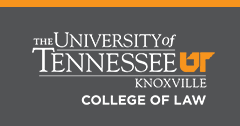Abstract
This article presents the underlying vision for the argument that principles of liberal neutrality pose a genuine obstacle to freedom in democratic society. There is a growing concern that liberty and justice are unattainable in modern democratic societies that are grounded in neutrality, including the United States. Experience has demonstrated significant shortcomings of the modern freedom movements grounded in political theories, which—along with the theory of neutrality—reject the need for core substantive values to guide law and policy. The underlying basis of such theories is a particular modern conception of freedom. But a well-grounded and reasoned alternative vision of human freedom exists: a distinctively Christian vision of human freedom as understood in light of the philosophical and theological study of God’s revelation to man. A comprehensive treatment of the Christian vision of human freedom can be gleaned from the scholarly work of Cardinal Joseph Ratzinger, currently Pope Emeritus Benedict XVI. From this alternative perspective, freedom is promoted and safeguarded only when core substantive values and moral insights are respected as the point of reference for law and justice in society, a condition which posits a role for the State in prudently fostering respect for those values and insights. Because this alternative vision is often misunderstood, the purpose of this article is to present a concise but in-depth synthesis of the writings of Ratzinger bearing on human freedom and democracy and to thereby encourage dialogue leading to a more moderate use of neutrality principles.
Recommended Citation
Jordan, Karen
(2014)
"A Christian Vision of Freedom and Discovery: Neutrality as an Obstacle to Freedom,"
Tennessee Journal of Law and Policy: Vol. 9:
Iss.
3, Article 4.
DOI: https://doi.org/10.70658/1940-4131.1216
Available at:
https://ir.law.utk.edu/tjlp/vol9/iss3/4
